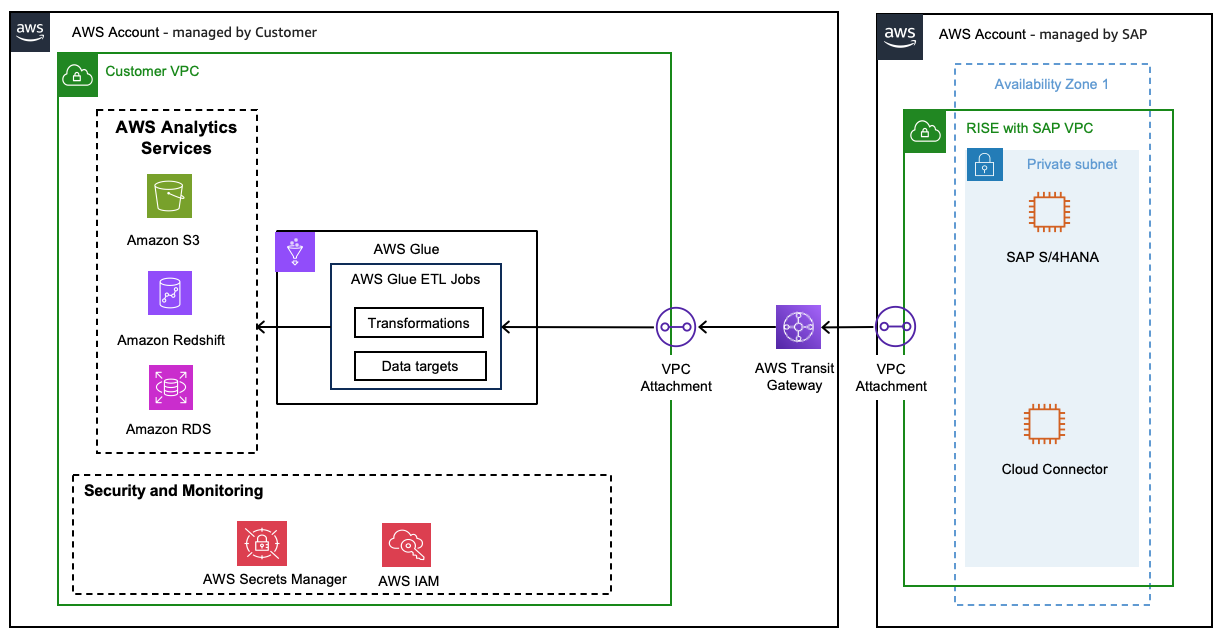本文属于机器翻译版本。若本译文内容与英语原文存在差异,则一律以英文原文为准。
使用AWS服务复制数据

AWS Glue
AWS G
OData 使用 Glue 连接到 SAP 用户指南提供了有关设置 Glue ETL 作业、配置 SAP OData 连接和从 SAP 读取数据(包括处理增量传输)的全面说明。
AWS Glue Zero-etl 是一组完全托管的集成AWS,它最大限度地减少了为常见的摄取和复制用例构建 ETL 数据管道的需求。它在 Amazon SageMaker Lakehouse 和 Amazon Redshift 中提供来自多个运营、交易和应用程序来源的数据。利用 SAP OData 连接器,您可以从 SAP 创建完整的数据复制作业,包括完全托管的复制(插入、更新和删除)以及架构演进。
AWS Glue 和 Glue Zero-etl 在数据集成中扮演着不同的角色,它们都为不同的用例提供了独特的优势。而AWS Glue 在复杂的 ETL 操作、数据发现、准备和提取方面表现出色,尤其适用于基于 SAP ODP 的复制等特殊场景。AWS Glue Zero-etl 被设计为一种更简化的无代码解决方案,适用于完全托管的数据复制场景。
AWS Glue 需要更多的动手管理,包括代码部署和维护,但它为数据转换过程提供了更大的灵活性和控制力。AWS Glue 的性能因其无服务器横向扩展 Apache Spark 环境而得到增强,该环境允许您为可扩展计算分配数据处理单元 (DPUs)。进而支持并行处理和事件驱动型执行。